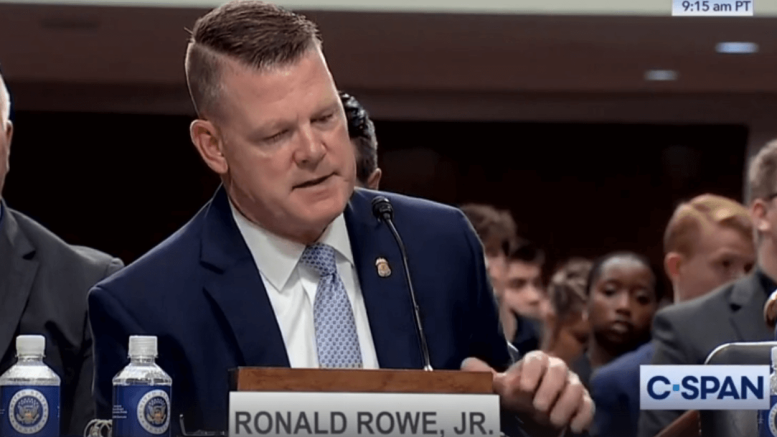Secret Service Director Kenneth Rowe Met Senator Ted Cruz
A recent intense exchange between Senator Ted Cruz and Acting Secret Service Director Kenneth Rowe highlights crucial security decisions made by the Secret Service. The contentious discussion focused on security arrangements for former President Donald Trump and Robert F. Kennedy Jr. The debate illuminated significant security and political issues that are of paramount importance to national safety and transparency. This article delves into the critical aspects of the hearing, scrutinizing the security decisions, political implications, and the broader conversation surrounding these events.
Secret Service Key Issues Highlighted
The confrontation began with Senator Cruz questioning the Secret Service Director Kenneth Rowe and the Secret Service’s decision-making processes regarding security details for high-profile figures. Cruz praised the bravery of individual Secret Service agents but criticized the leadership for what he called ‘catastrophic security failures.’ He pointed out that these failures were the most severe since the attempted assassination of President Ronald Reagan in 1981.
Cruz highlighted the conflicting reports regarding security arrangements for Trump and RFK Jr., suggesting a possible political motive behind these decisions. The senator demanded clarity on whether Secret Service leadership denied additional security requests for Trump and if similar decisions were made for RFK Jr.
Ted Cruz’s Concerns
- **Contradictory Statements:**
Cruz referenced a statement by the Secret Service denying claims that additional security resources were requested and rebuffed for Trump’s events. According to Cruz, the Washington Post reported that the Trump security detail repeatedly requested more resources, which were allegedly denied by top Secret Service officials. Cruz questioned the accuracy of these statements and demanded transparency.2. **Political Influences:**
Cruz expressed concerns about potential political motivations behind the Secret Service’s decisions. He questioned whether the Biden administration’s politics influenced the denial of security requests for Trump and RFK Jr. He asked if the same person who denied Trump’s requests also refused RFK Jr.’s requests, given RFK Jr.’s family’s tragic history with assassinations.3. **Discrepancies in Security Detail:**
Another significant point of contention was the difference in security details assigned to Trump compared to President Joe Biden. Cruz demanded specifics on the relative size of security details, questioning whether Trump received the same level of protection as a sitting president.
Secret Service’s Response
Acting Secret Service Director Kenneth Rowe defended the agency’s decisions, emphasizing that Secret Service agents are not influenced by political considerations. He clarified the process of allocating resources, stating that it involves a complex evaluation of multiple factors. Rowe explained that decisions are made based on available resources, field office coordination, and logistical assessments.
Despite Cruz’s persistent questioning, Rowe maintained that the Secret Service acted in accordance with established protocols and that no political considerations influenced their decisions. However, he acknowledged that he would provide the committee with further details on the requests and responses related to Trump’s security arrangements.
Broader Implications
The heated exchange between Cruz and Rowe underscores a broader concern about the politicization of security agencies and the need for transparency in their operations. The clash highlights the delicate balance between ensuring the safety of high-profile figures and navigating potential political pressures.
The debate also raises questions about the adequacy of security measures for public figures, particularly those with significant public attention and potential threats. The discussion emphasizes the need for a transparent process in determining security arrangements and the importance of maintaining public trust in these decisions.
Senator Ted Cruz’s clash with Acting Secret Service Director Kenneth Rowe sheds light on the intricate challenges of providing security for former presidents and public figures. The exchange highlights concerns about political influences, transparency, and the adequacy of security arrangements. As the debate unfolds, it underscores the critical need for a nonpartisan approach to security decisions and the imperative of maintaining trust in the agencies responsible for safeguarding national figures.
The hearing’s outcome will likely have significant implications for future security protocols and the perception of political influences on security agencies. As the Secret Service continues to navigate these complex issues, ensuring transparency and accountability will be paramount in preserving public confidence and ensuring the safety of those under its protection.

